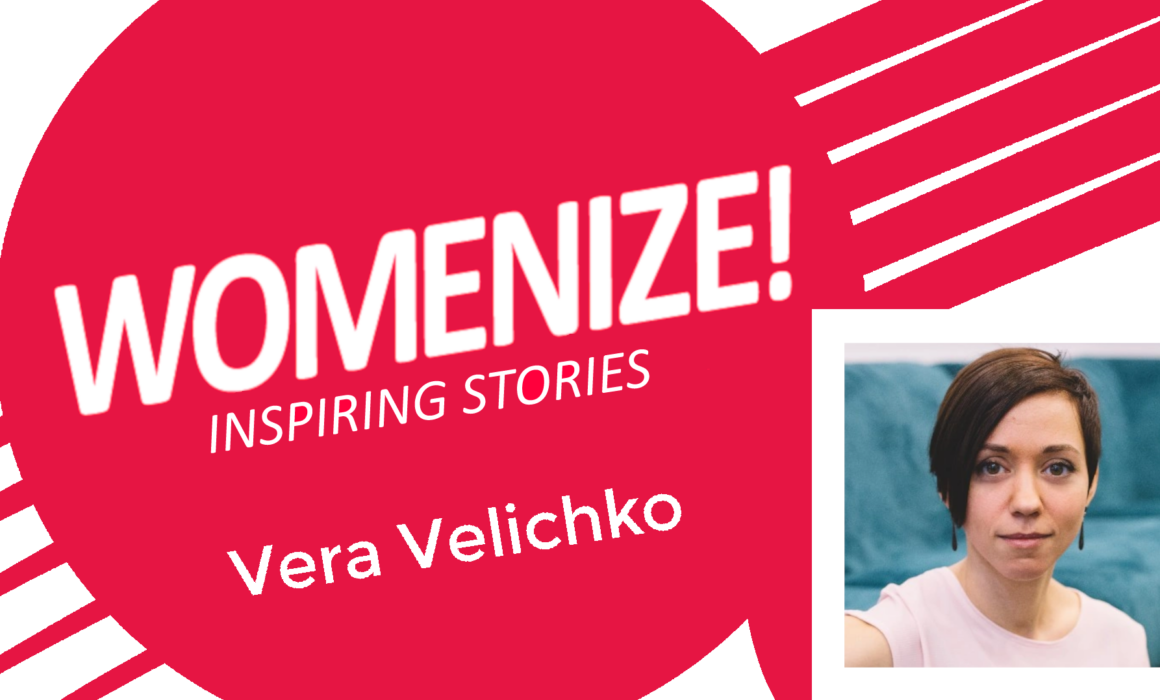Vera Velichko – Womenize! – Inspiring Stories
Womenize! – Inspiring Stories is our weekly series featuring inspirational individuals from games and tech. For this edition we talked to Vera Velichko, CEO of Owl Studio. She speaks about her journey of founding “Owl Studio,” the challenges of balancing her creative work with business responsibilities, and emphasizes the importance of passion, happiness, and effective management in achieving success.Read more about Vera here:
Hi Vera! Founding “Owl Studio”, a game studio as well as publisher, without any investments is truly remarkable. Could you share the hurdles you encountered during the initial phases and the tactics you used to expand the studio to its current size (more than 50 team members)?
There were five of us in the beginning, all friends who was interested in trying to do something together. I believe first and most important power is the power of will. If you’d like to do something – you just do, and in process you’ll find all opportunities you need. In four months, after starting the studio, we have found our strategical partner, very experienced in business, who helped us to establish all the processes. It was my teacher and guide in business world.
I guess there are three parts of success: courage, fortune and experience. Money doesn’t have any significant meaning in this equation, it’s just the field you would play in. There are types of business you can’t open without investments, and other types you can just start with your own hands, and IT industry gives us plenty of opportunities for free start.
Since 2016 you’ve been a speaker at various conferences. What are some topics or messages you feel passionate about sharing with the game development community, and why are they important to you?
I’ve calculated all the speeches I gave since 2016, it’s around 50. Some of them are quite standard: some work cases, art pipelines and so one. But there are themes I like the most, and it’s always my most popular speeches: business processes, management and psychology. I believe it’s the most specific skills I have. There are a lot of artists and topics about “how to do art”, and I’ve been talking about it too much. Sometimes I felt useless and bored preparing another “how to create a character” talk. My last speech calls “Art production: budget and business plan”. I was happy to see how many colleagues was interested in it, and there was so many questions at the end. People doesn’t have questions about characters anymore
As an artist and entrepreneur, how do you balance your creative work with the responsibilities of running a successful game studio? Any tips for people aspiring to follow a similar path?
I’ve never liked being game artist. At my second degree I had this idea to join Game industry, but it wasn’t my passion or something like this. It was just better than creating some advertising illustrations or become a traditional artist with no perspectives. But game art itself, it doesn’t have any personal meaning for me. There are artists who are constantly drawing some orcs, elves, robots, cartoony characters, game items, they just do it for fun and for years I tried to do the same and it never worked for me. I’m an artist of emotions and nature, and doesn’t like drawing by technical descriptions. Actually, I hate it J I love than my art is free and just follows my inner strings, in can be portraits, or clouds (I love clouds), or some allegoric illustrations.
But, I love management, challenges, working with people, leading, mentoring, trying to figure out how the market works. And I love than my team creates beautiful projects exceeding my highest expectation and I don’t do a single brushstroke there.
Wherefore, art/business balance is an actual issue for me. My true passion is psychology, I’m taking a second education as a clinical psychologist, and my schedule is actually creasy. Last few years was super hard for me, and one day I found myself on the brink of burning out. My way out was to free myself from my own expectations. Everything I do is, at the end, just a search for happiness, but I gave it away choosing the work every day, without weekends, it always was like “first I mast finish this job and then (…)”. And this “then” hewer happened. So it’s the most important balance: be happy at first place, and then choose your career path. It could be unique, you can construct it the way you’d like it to be.
There are some helpers, like schedule, time management and personal assistant, which can help you to organize everything in accordance with your desire. But first of all it’s important to ask yourself which balance of art and business will make you happy, and then just follow it. And fight the time killers. But, it’s another topic… 🙂
Thanks for this interview, Vera!
Vera’s links: LinkedIn

